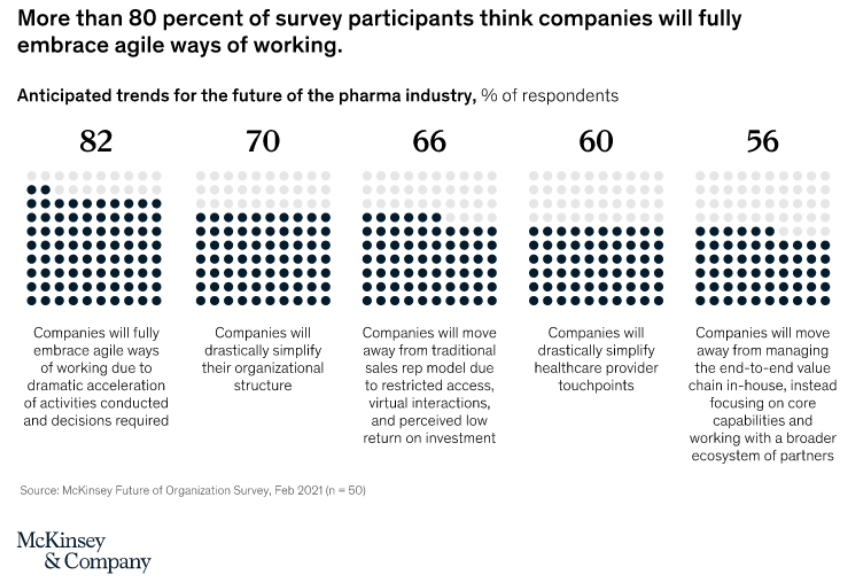The pharmaceutical industry is beginning to recognize the importance of agility in its operating models. New trends are emerging that focus on creating more robust and adaptive systems to drive progress and innovation. This shift away from traditional methods of pharmaceutical production has been a long time coming, but it's becoming increasingly clear that these new operating models offer numerous advantages over their older counterparts.
Some of these advantages include faster decision-making processes, rapid integration with external partners, improved scalability and flexibility, increased visibility into supply chain operations, and enhanced customer service capabilities. All of these benefits can help pharmaceutical companies stay competitive in an ever-changing market. Additionally, by embracing agile models as part of their overall strategy, pharmaceutical companies can reduce costs associated with development cycles and maximize their return on investment.
The pharmaceutical industry is at a turning point, and the shift to agile operating models is becoming more important than ever before. As pharmaceutical companies embrace these new trends and technologies, they will be well-positioned to capitalize on the opportunities that lie ahead.
The industry’s transformation heavily relies on new capacities and talent. This trend is likely to cause talent distribution, making manufacturing more flexible. For instance, the requirements to work on-site may become less acute. The post-COVID-19 workforce will be more resilient to changes, which can lead to more well-distributed organizations.
There is a growing need for talented individuals to be able to program, operate, and interpret data while keeping up with technological advancements. This process will also create up-skilling and integrated capacity-building while helping employees stay responsive to changes.
As shown in the chart above, look at some of the major pharma trends for 2022 where agility and reorganization are topping the charts.
In the McKinsey & Company survey, more than 80% of the US pharma companies’ executives believe that companies will largely rely on agile working methods in the near future. This suggests that organizations may simplify their structures and rely on sales representatives less often.






